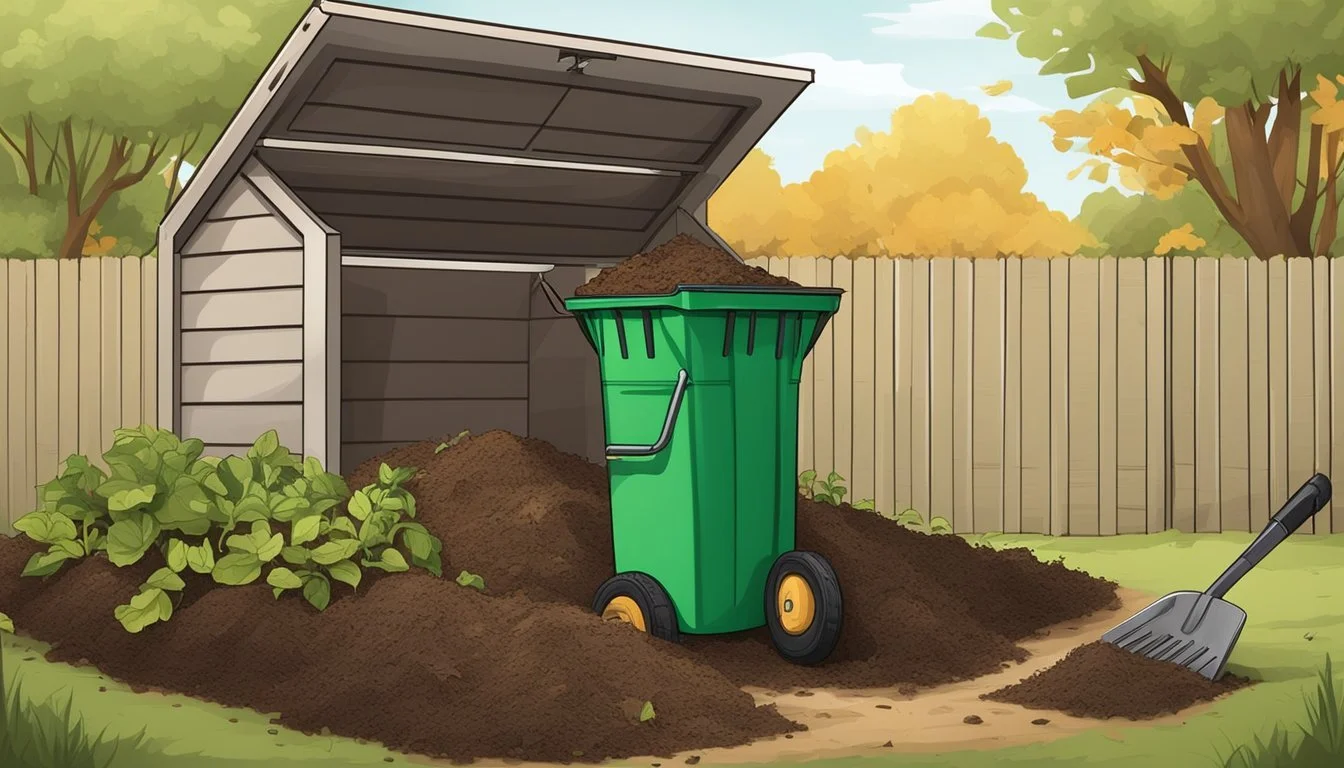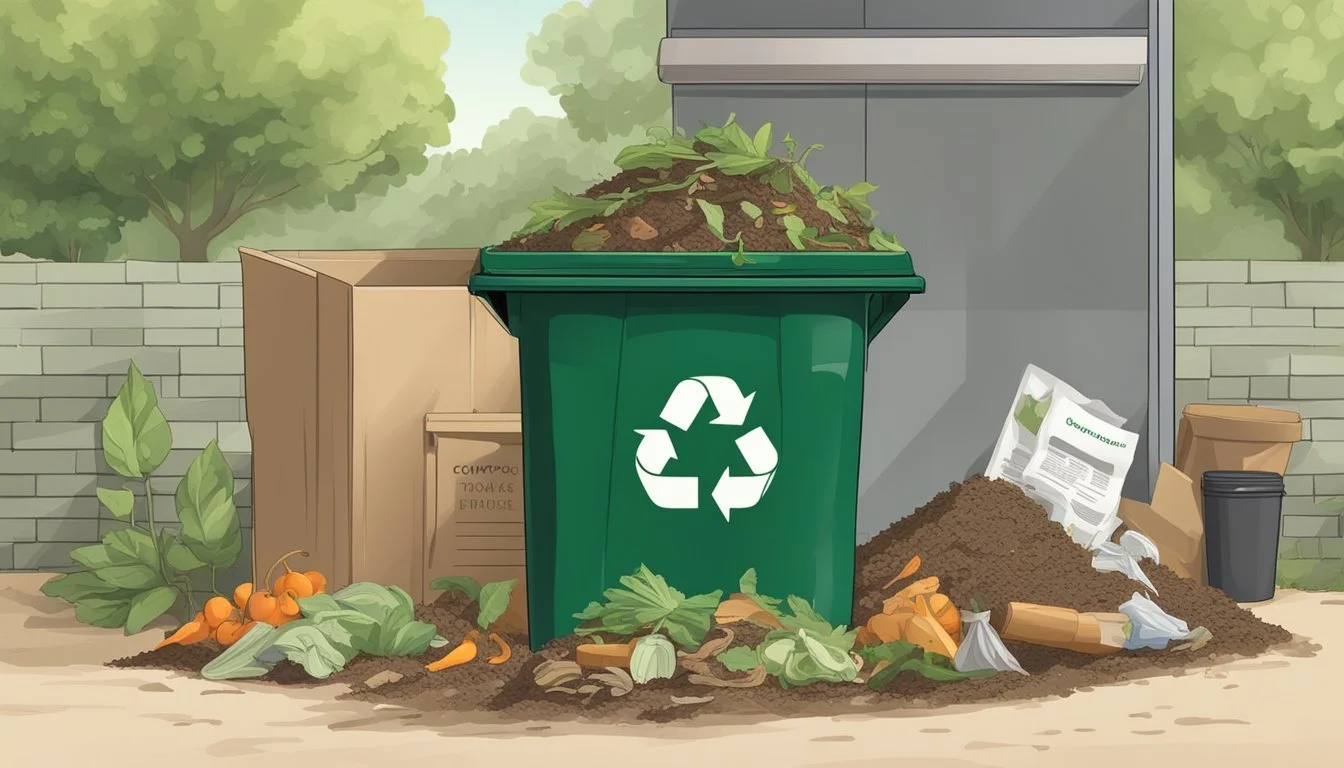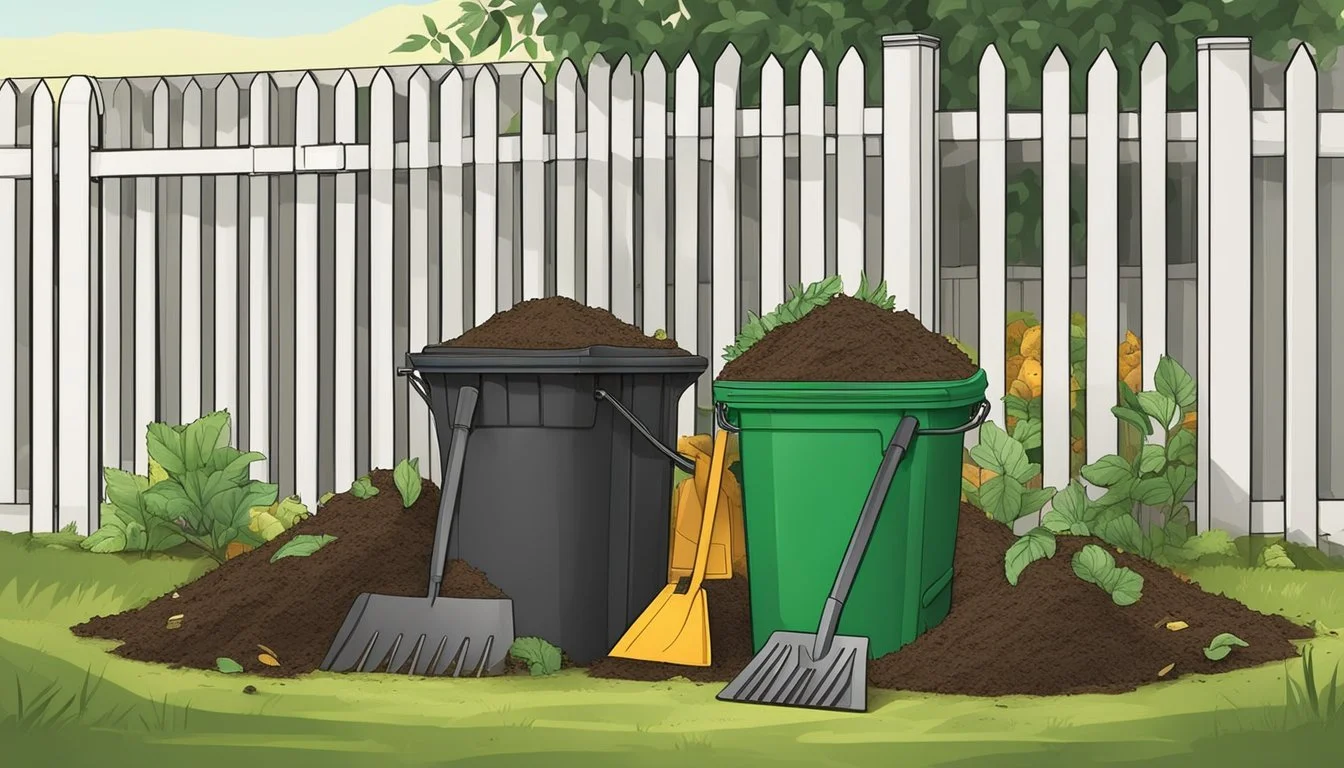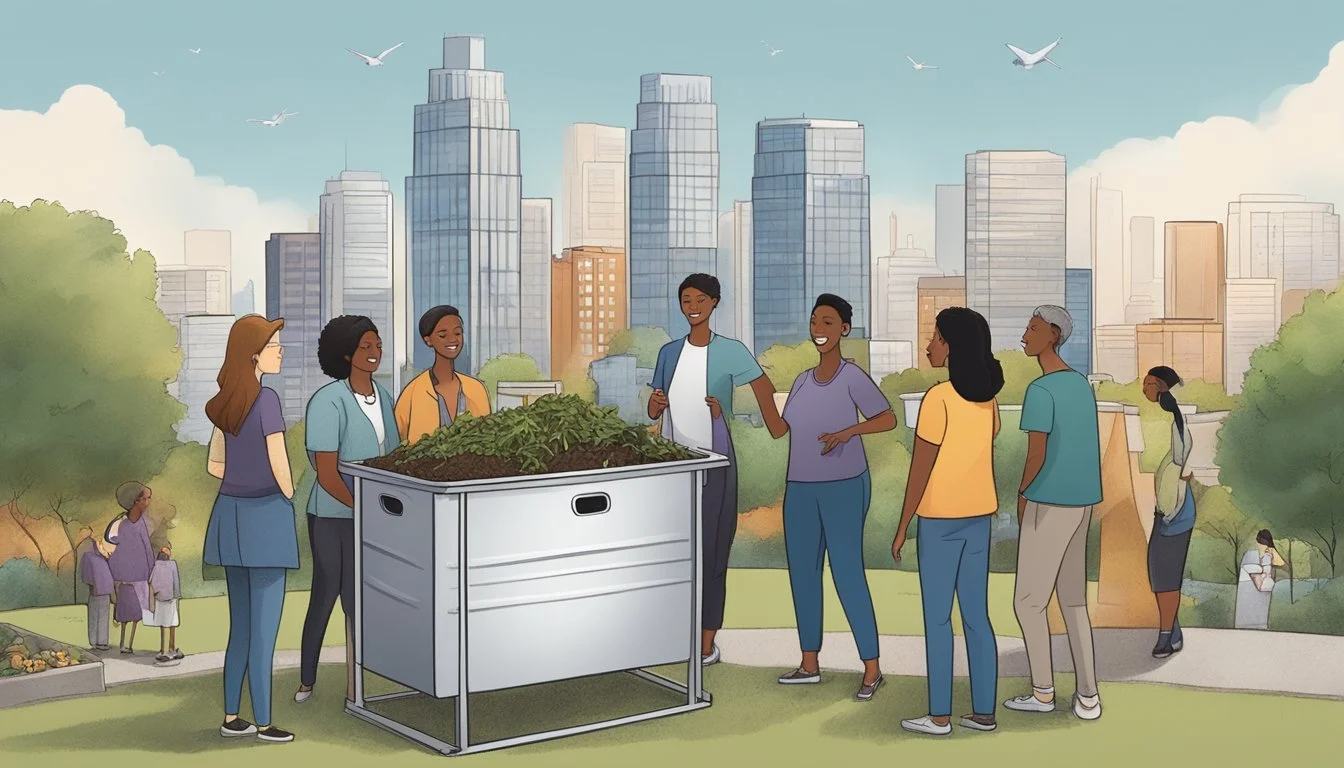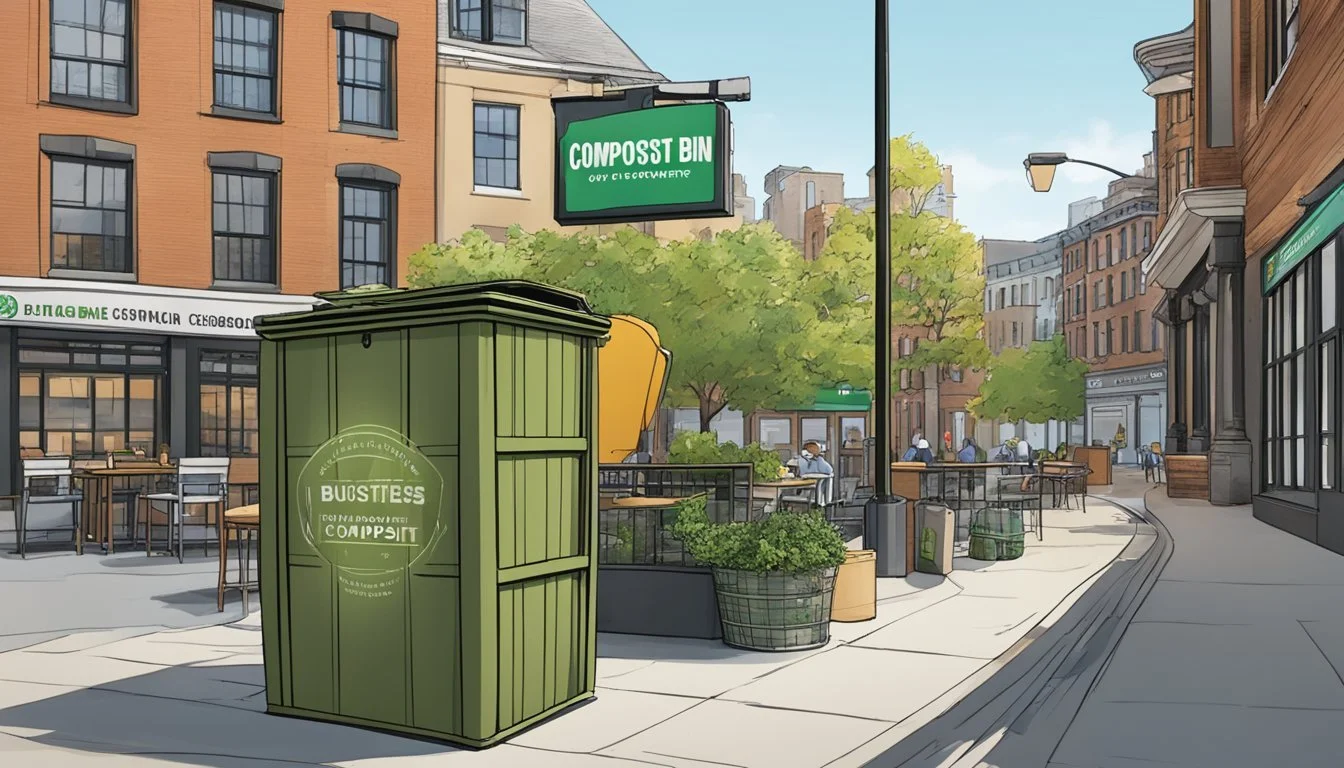Guide to Composting in Cambridge, MA
Essential Tips for City Residents
Composting in Cambridge, Massachusetts, reflects the city's commitment to sustainability and waste reduction. Initiated citywide in 2018, the Curbside Composting program is a key component of the city's strategy to minimize landfill waste. Each week, residents contribute to the 40 tons of food scraps and organic materials collected, highlighting the community's active participation in eco-friendly practices.
Understanding the procedures and benefits of composting is critical for Cambridge residents. The program not only facilitates the responsible disposal of organic waste but also supports the production of fertilizer and clean energy. The City of Cambridge provides clear instructions on how to effectively separate and prepare compostable materials, ensuring that the process is hassle-free for households.
The city’s Department of Public Works (DPW) transports the collected food scraps to the CORe facility in Charlestown for processing. This collaboration with Waste Management's CORe facility is a testament to Cambridge’s progressive approach to managing food waste and reflects a broader goal of reducing municipal garbage output significantly by 2050. Together, these efforts present a model for municipal environmental stewardship that other cities might look to emulate.
Basics of Composting
Composting in Cambridge, MA, is a process designed to transform organic waste into valuable fertilizer, contributing to soil health and climate change mitigation.
What is Composting?
Composting is a natural process of recycling organic material like fruits, vegetables, and yard waste into compost, a nutrient-rich soil amendment. In this aerobic (requiring oxygen) process, microorganisms break down waste, resulting in a product that can be added to soil to support plant growth.
Benefits of Composting
Engaging in composting has multiple benefits; it enriches the soil, helping to retain moisture and suppress plant diseases and pests. Moreover, it reduces the need for chemical fertilizers and diverts significant amounts of waste from landfills and combustion facilities, thereby reducing methane emissions and contributing to the fight against climate change.
Different Types of Composting
There are several types of composting suitable for a variety of residential and commercial applications:
Home Composting: You can compost at home using a compost bin or pile, turning kitchen and garden waste into compost over time.
Vermicomposting: This involves the use of worms to compost. It's efficient for indoor composting and works well in smaller spaces.
Community Composting: Shared composting programs, such as the Curbside Composting program in Cambridge, allow residents to deposit organic waste for community-scale decomposition, which is then processed into healthy soil for communal benefit.
Each of these methods supports the conversion of organic waste into valuable compost, contributing to waste reduction and soil health in an urban environment.
Setting Up a Compost System in Cambridge
Setting up a compost system in Cambridge, Massachusetts can be both environmentally beneficial and easy to manage. Residents have the advantage of city-provided resources and programs to assist in composting efforts.
Choosing the Right Bin
In Cambridge, residents can participate in the city's curbside composting program. They may obtain a kitchen compost bin complete with compostable bags from Cambridge Public Works or have one delivered to their home. The ideal bin should be secure to prevent pests and odors.
Location and Maintenance
The placement of a compost bin is crucial. It should be situated in a convenient yet unobtrusive spot, preferably in the shade to reduce odor and deter pests. Regular maintenance of the compost bin—such as using compostable bags and routine cleanout—is essential to keep the system hygienic and functioning properly.
Backyard Composting
For residents interested in backyard composting, Cambridge provides guidance on how to compost yard waste effectively. It's important to balance green materials, like kitchen scraps, with brown materials, such as leaves, to create quality compost. One should turn the pile occasionally to aerate it.
Community Composting Initiatives
The City of Cambridge fosters community composting initiatives, allowing those without yard space to contribute to local composting hubs. These initiatives support communal garden spaces and often accept food scraps for composting, aligning with Cambridge's waste reduction goals.
What to Compost
Composting in Cambridge, MA, is a simple and eco-friendly process designed to recycle organic waste into nutrient-rich soil. It’s important to balance green and brown materials in your compost bin, include various acceptable food waste, and exclude harmful items.
Green and Brown Materials
When composting, it's crucial to balance green materials, which are rich in nitrogen, with brown materials, providing carbon. Green materials include vegetable scraps, fruit waste, and grass clippings, while brown materials encompass dry leaves, straw, and sawdust. A proper balance helps to create an environment that supports the breakdown of organic matter effectively.
Green Materials:
Food scraps
Coffee grounds
Fresh grass clippings
Plants
Brown Materials:
Dry leaves
Straw and hay
Sawdust
Paper towels
Acceptable Food Scraps and Wastes
Cambridge acknowledges various food scraps and wastes suitable for curbside composting. Individuals can include items such as eggshells, fruits, and vegetables. Moreover, coffee grounds and their filters, along with paper towels, contribute to the composting process without negatively impacting the environment. Always ensure food scraps are placed in a certified compostable bag before adding them to your curbside cart.
Food Scraps:
Eggshells
Fruit peels and cores
Vegetable scraps
Coffee grounds with filters
Materials to Avoid
Certain materials may hinder the composting process or release toxins into the compost. Plastic bags should be strictly avoided as they do not break down and can be harmful to the environment. Additionally, avoid including diseased plants or greasy food scraps that could attract pests or disrupt the compost's balance.
Materials to Exclude:
Plastic bags
Diseased plants
Greasy or oily food waste
By understanding what to compost, residents of Cambridge can participate in the Curbside Composting program effectively, supporting the city's initiative to minimize waste and regenerate the soil in a sustainable manner.
Handling and Storage Tips
Proper handling and storage are crucial for successful composting in Cambridge. This ensures efficient breakdown of organic waste while minimizing odor and pest attraction.
Using Compostable Bags
Cambridge residents should always use compostable bags when collecting kitchen scraps. These bags are designed to break down along with the food waste and are a key element in keeping the composting process clean. By using compostable bags, individuals contribute to a more sustainable system and ensure that their organic waste is processed correctly.
Keeping Your Setup Clean
Maintaining cleanliness in compost operations is non-negotiable. One should regularly clean their compost bin to avoid residue build-up. The City of Cambridge suggests bringing food scraps out to the curbside compost bin every few days and rinsing both bins as needed. For thorough cleaning, Cambridge residents can wash their kitchen bins in a dishwasher, as stated in the composting tips.
Managing Odor and Pests
To manage odors and deter critters, residents are advised to store food scraps in their refrigerator or freezer, especially during the warmer months. This practice slows down decomposition, thus reducing odors that attract pests. For outside storage, a locking compost cart is recommended to keep the compost secure and inaccessible to animals.
Compost Collection and Drop-Off
Cambridge, MA offers efficient compost collection and has numerous drop-off locations that simplify organic waste disposal for its residents.
Curbside Composting Services
The City of Cambridge has implemented a citywide curbside composting program to manage organic waste. Residents receive a bin to collect food scraps, which is then picked up weekly, alongside regular trash and recycling services. The materials collected are turned into nutrient-rich soil and clean energy, contributing to the city's sustainability efforts. The program aligns with the Massachusetts Department of Environmental Protection's guidelines to reduce landfill waste.
Hours of Service for Curbside Composting:
Monday: 8:30 AM - 8 PM
Tuesday - Thursday: 8:30 AM - 5 PM
Friday: 8:30 AM - 12 PM
Bins should be lined with paper bags or approved compostable bags. Compostable materials include food scraps, coffee grounds, and more. It is essential to tie bags securely to prevent spillage and odors.
Local Compost Drop-Off Locations
For those without access to curbside services or who live in buildings not serviced by the program, Cambridge has established accessible compost drop-off locations throughout the city. These sites are open 24 hours and can be found in areas such as Cambridge Crossing, Danehy Park, and near the Public Works Department. Charlestown residents who work or frequently travel to Cambridge can also use these drop-off sites.
Examples of Drop-Off Locations:
Cambridge Crossing (across from 10 Education Circle)
Moore Youth Center (12 Gilmore St)
Danehy Park (New Street parking lot)
Businesses like Bootstrap Compost offer alternative services, tailored for those looking for private composting collection options.
By utilizing these services, Cambridge residents contribute to the city's waste reduction goals and environmental sustainability. The Department of Public Works (DPW) offers further resources and support to ensure the success of the program.
Incorporating Compost into Gardening
In Cambridge, smart gardeners understand the value of using compost to nourish their gardens. Compost is crucial for creating healthy soil, enhancing both suburban yards and urban garden plots.
Enriching Your Soil with Compost
Compost serves as a soil amendment, introducing vital nutrients back into the ground to support plant growth. To enrich garden soil with compost, gardeners should:
Conduct a soil test to determine the nutrient needs of their soil.
Add a 2 to 3-inch layer of compost to the garden bed.
Mix it thoroughly into the top 6 to 8 inches of the soil to ensure even distribution.
This process not only augments soil fertility but also improves soil structure, which is essential for healthy plant roots. By following these steps, gardeners can effectively prepare their soil for the planting season, ensuring that they provide the best possible environment for their plants to thrive.
Composting for Urban Gardens
In the context of urban gardening, space constraints in Cambridge require innovative composting approaches. Apartment dwellers or those with smaller outdoor spaces can utilize community composting programs or small-scale compost bins. The City of Cambridge's curbside composting service makes it feasible for city dwellers to contribute to and benefit from local composting efforts without having to manage their own large compost system.
Even in limited spaces, incorporating compost into garden soils can be highly beneficial:
Use compost to enhance container gardens by mixing it with potting soil.
For raised garden beds, periodically adding compost can replenish nutrients that are depleted over time.
Urban gardeners can also participate in compost giveback days, where free finished compost is provided to residents for their gardening needs, promoting a cycle of sustainability within the urban community. Compost utilization is a key component in the success of urban gardening, allowing even the smallest spaces to yield robust plant growth.
Community and Legislation
Massachusetts and Cambridge lead in environmental stewardship by implementing robust composting regulations and fostering community involvement. The City Council and Department of Public Works (DPW) play pivotal roles in this initiative, emphasizing both adherence to laws and educational outreach.
Regulations in Massachusetts
Massachusetts maintains strict regulations on waste management, specifically mandating the diversion of food waste from landfills and incinerators for businesses that dispose of one ton or more of organic material per week. The state's Department of Environmental Protection oversees this policy to reduce greenhouse gas emissions and foster the use of organic waste as a resource.
Community Involvement and Education
The City of Cambridge has taken significant steps in community education and involvement in composting. Through the DPW, Cambridge offers curbside composting services, aiming to collect more than 40 tons of food waste per week from residences and businesses. The city also conducts education programs to enlighten residents about the benefits of composting and proper participation methods, such as using compostable bags and maintaining clean compost bins. These efforts demonstrate a dedication to waste reduction and sustainability through active regulation and community engagement.
Advancing Sustainability and Waste Reduction
Sustainability and waste reduction in Cambridge, MA, are seeing real progress thanks to innovative composting initiatives. These efforts have direct implications for waste management efficiency and demonstrate leadership in the Greater Boston Area’s approach to environmental responsibility.
The Impact of Composting on Waste Management
Composting is a key player in sustainability, for it effectively diverts food scraps away from overburdened landfills. Cambridge's strategic composting program collects 40 tons of food waste per week, transforming it into clean energy and reducing the overall volume of waste. This contributes to Massachusetts' goal to diminish landfill contents and supports the state's quest for a greener future.
Composting in the Greater Boston Area
The concerted push for composting in Cambridge sets a benchmark for the Greater Boston area, encouraging other municipalities to follow suit. Food waste is hauled to facilities equipped to handle large quantities of organic waste. This robust network capacity not only manages waste locally but could potentially influence waste reduction strategies in New York City and beyond, exemplifying regional leadership in green practices.
Future of Waste Reduction Initiatives
Looking ahead, Cambridge remains committed to waste reduction. Ongoing efforts to enhance its programs are likely to focus on increasing participation levels and optimizing the collection processes. Clear educational materials and accessible participation guidelines are critical in empowering residents to reduce waste effectively. These measures, coupled with growing environmental awareness, suggest a promising trajectory for recycling and composting achievements in Massachusetts.
Tips for Businesses and Restaurants
Businesses and restaurants in Cambridge have the opportunity to significantly reduce waste and contribute to a sustainable future through composting efforts. Compliance with local regulations and consideration of environmental impact are key.
Commercial Composting Programs
Citywide Initiative: In 2018, Cambridge initiated a citywide food waste pickup service, catering to various establishments including restaurants, schools, and markets. They now collect an impressive 40 tons of food waste per week, converting it into clean energy.
Choosing a Service: Restaurants should consider partnering with this city-run program. It provides not only a responsible waste management solution but also heavy-duty, locking curbside carts to keep rodents out and maintain hygiene.
Best Practices for Organic Waste
Segregate: Separate food waste from other trash. This simplification aids in easy collection and prevents contamination of recyclables and compostables.
Educate Staff: Implement training programs to ensure all employees understand the importance of proper waste segregation and the steps required for efficient composting.
Customer Awareness: Encouragement can come through informational signage or talks about the environmental benefits of composting.
By adhering to these guidelines, businesses and restaurants can play a pivotal role in the city's waste management and energy creation initiatives while maintaining cleanliness and reducing their carbon footprint.

